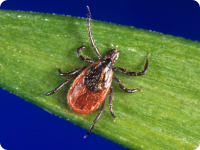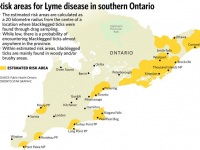Potential incoming rapid-test for Lyme disease
A Canadian-based student researcher affected with Lyme's disease since she was seven years old is now working on a rapid-test for Lyme's disease.
A collaboration between Harvard University microbiology student Indumathi Prakash and a Queen's University professor, working virtually, to develop a rapid test to diagnose the bacterium that causes Lyme's disease.
A rapid test is important in the fight against Lyme's disease to ensure faster treatment for Lyme's disease.



